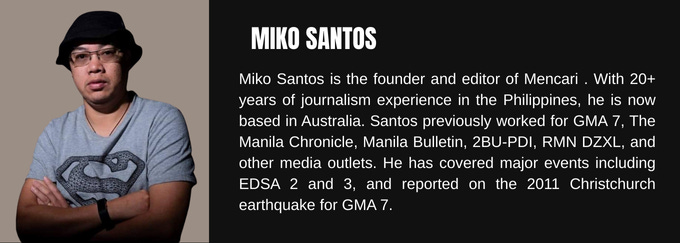Australian PM Defends Israel Policy After Netanyahu Criticism
Today’s email is brought to you by Empower your podcasting vision with a suite of creative solutions at your fingertips.
Australian Prime Minister Anthony Albanese on Wednesday defended his government's Middle East policy after Israeli Prime Minister Benjamin Netanyahu publicly called him a "weak leader" who abandoned the Australian Jewish community.
Speaking at a press conference in Adelaide, Albanese revealed he had warned Netanyahu in a phone call prior to Australia's Cabinet decision to support Palestinian statehood recognition, giving the Israeli leader advance notice of the policy direction.
"I contacted Prime Minister Netanyahu and met with him over the phone," Albanese said. "We had a long discussion prior to the Cabinet meeting, which was held last Monday morning. At that time, I gave Prime Minister Netanyahu a clear indication of my view and Australia's view going forward."
The exchange represents a significant diplomatic rift between the two allies, with Netanyahu's rare public criticism of an Australian leader highlighting growing international pressure on Israel over its conduct in Gaza.
Albanese said he gave Netanyahu "the opportunity to outline what political solution there was" during their conversation before Australia joined other nations in supporting Palestinian statehood recognition.
The Australian leader dismissed suggestions that Netanyahu's criticism was personal, saying the Israeli prime minister "has had similar things to say about other leaders."
"I don't take these things personally," Albanese said. "I engage with people diplomatically."
Australia's position centers on ending violence and preventing conflict from spreading domestically, Albanese explained.
"Australians very much want two things to happen," he said. "One, they want people to stop killing each other, whether it be Israelis or Palestinians. Second thing that they want is for conflict to not be brought here."
The prime minister emphasized Australia's continued support for a two-state solution, describing it as a "long-term bipartisan position for two states, State of Israel, State of Palestine, living side by side."
He referenced the 1947 United Nations decision that envisioned "a majority Jewish state of Israel and a Palestinian state living side by side with security."
Albanese defended Australia's stance by pointing to growing international consensus, noting that "147 countries recognize Palestine" and describing it as an "overwhelming majority" representing "three-quarters of the world's nations."
Truth matters. Quality journalism costs.
Your subscription to Mencari directly funds the investigative reporting our democracy needs. For less than a coffee per week, you enable our journalists to uncover stories that powerful interests would rather keep hidden. There is no corporate influence involved. No compromises. Just honest journalism when we need it most.
Not ready to be paid subscribe, but appreciate the newsletter ? Grab us a beer or snag the exclusive ad spot at the top of next week's newsletter.
The prime minister listed several Western allies that have made similar statements, including "the United Kingdom, France, other countries as well, statements by Germany, Italy, other countries joining these statements."
He specifically mentioned Canadian Prime Minister Justin Trudeau's support for Palestinian recognition as part of creating "a path forward for peace."
When pressed about civilian casualties in Gaza, Albanese acknowledged the toll while maintaining Australia's position from an October parliamentary resolution.
"Do I think too many innocent lives have been lost? Yes, I do," he said. "What's important is that the international community thinks that as well overwhelmingly, and also that is what Australians see."
The prime minister cited the October 7 parliamentary resolution that "condemned unequivocally the actions of Hamas as a terrorist organisation" while affirming "Israel had a right to defend itself."
However, he emphasized that "how it defended itself mattered" and needed to occur "within international law" with "respect for innocent lives."
Albanese pointed to specific Israeli actions that have drawn Australian concern, including "increased settler violence in the West Bank" and "the decision that Israel has made in March to restrict the access of aid food and water that people in Gaza needed."
The prime minister said Australians observe these developments through media coverage "in spite of the fact that there's limited media presence in Gaza" and "think that something needs to change."
"The cycle of violence needs to change," Albanese said.
The diplomatic tensions emerge as international efforts intensify to broker a ceasefire and hostage release deal. Albanese welcomed recent developments, saying there had been "announcement that there could be a breakthrough, the release of hostages, a ceasefire, is what I think Australians want to see."
He referenced participating in international discussions led by French President Emmanuel Macron and British Prime Minister Keir Starmer, involving "other democratic leaders" from Europe, Canada, New Zealand and Japan.
These leaders discussed recent meetings between President Donald Trump and Ukrainian President Volodymyr Zelensky, "looking towards peace" in multiple conflict zones.
Albanese rejected any suggestion that his government had acted inappropriately in the Middle East crisis, saying community leaders had contacted him to express support for the government's approach.
"Leaders of the community who've contacted me, including today, contacted me to say that they believe that the government is acting responsibly," he said.
The prime minister emphasized that Australia was "not alone" in its position and criticized continuing the current approach in Gaza.
"You can't just say, we'll just continue to do the same thing, the cycle of violence," Albanese said. "The idea that you would just occupy Gaza and continue to do more of the same in the same way, just as Prime Minister Netanyahu said, more than a year ago, when we had a discussion, it was very similar. You just can't keep doing the same thing."
He stressed the need to "break that cycle of balance" while maintaining that any solution must include "no role for Hamas."
The diplomatic dispute occurs as Australia seeks to maintain relationships across the Middle East while responding to domestic pressure from various community groups affected by the ongoing conflict.
Australia's recognition of Palestinian statehood aligns the country with a growing number of Western nations reassessing their Middle East policies amid the prolonged Gaza conflict and mounting civilian casualties.
The public nature of Netanyahu's criticism of Albanese represents an unusual breach of diplomatic protocol between allied nations, suggesting the depth of Israeli frustration with international pressure over its Gaza operations.
Got a News Tip?
Contact our editor via Proton Mail encrypted, X Direct Message, LinkedIn, or email. You can securely message him on Signal by using his username, Miko Santos.
Sustaining Mencari Requires Your Support
Independent journalism costs money. Help us continue delivering in-depth investigations and unfiltered commentary on the world's real stories. Your financial contribution enables thorough investigative work and thoughtful analysis, all supported by a dedicated community committed to accuracy and transparency.
Subscribe today to unlock our full archive of investigative reporting and fearless analysis. Subscribing to independent media outlets represents more than just information consumption—it embodies a commitment to factual reporting.
As well as knowing you’re keeping Mencari (Australia) alive, you’ll also get:
Get breaking news AS IT HAPPENS - Gain instant access to our real-time coverage and analysis when major stories break, keeping you ahead of the curve
Unlock our COMPLETE content library - Enjoy unlimited access to every newsletter, podcast episode, and exclusive archive—all seamlessly available in your favorite podcast apps.
Join the conversation that matters - Be part of our vibrant community with full commenting privileges on all content, directly supporting The Evening Post (Australia)
Catch up on some of Mencari’s recent stories:

Shadow Minister Claims Australia-Israel Relations Hit "All-Time Low" Due to Government Incompetence
It only takes a minute to help us investigate fearlessly and expose lies and wrongdoing to hold power accountable. Thanks!







